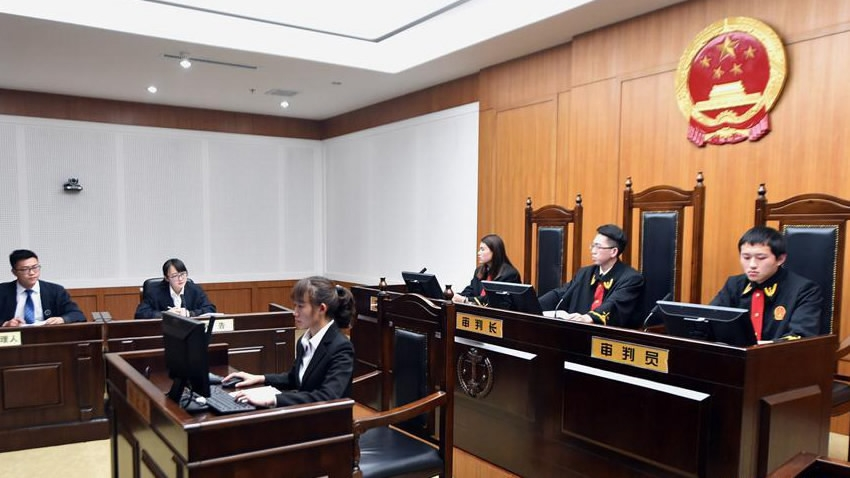Being a minority shareholder in a China limited liability company can be a nightmare for investors, foreign or domestic. You get stuck there with no hope and find yourself no easy exit. I have witnessed many such sad stories happening to foreign clients who participated in Sino-foreign equity joint ventures.
So it will be meaningful for investors to know what rights are provided under China Company Law for minority shareholders and how these rights can help them in the operation of the companies in question.
We list the rights that minority shareholders can avail themselves of under China Company Law (as amended in 2013)
- Right to claim damages caused by other shareholders abusing shareholder rights
In the "General Provisions" section of China Company Law, Article 20 provides in principle that shareholders shall not abuse its powers and rights causing damage to the interests of the company and other shareholders. This is a provision of principle but it is often triggered by minority shareholders in corporate lawsuits against majority shareholders.
Apparently, the abusing shareholders referred to therein are majority shareholders of companies. For example, in practice, in order to dilute the shareholding by held by minority shareholders, majority shareholder managed to pass a shareholder resolution under which the company increased its registered capital by issuing new shares to a third party at an artificially low price, thus dwindling a minority shareholder's holding from 15% to 6.3%. After increase of registered capital, the small shareholder's interests were severely damaged. The small shareholder can therefore claim damages based on this Article 20.
2. Right to void or revoke shareholders meeting resolution and board resolution
This is also a right provided in the "General Provisions" of China Company Law in its Article 22.
Paragraph 1 of this Article 22 provides, if the contents of the resolution by shareholders or the board are in violation of state laws and regulations, a shareholder or even other interested stake-holders (such as creditors, officers or employees, as proposed in the 4th judicial interpretation by China Supreme Court of China Company Law) can sue to court to nullify the resolutions in question.
On the other hand, paragraph 2 of this Article 22 provides, if the procedures for convening the shareholders' meeting or board meeting are in breach of relevant laws and regulations or the articles of association of the company, or the contents of the resolutions violate the articles of association, then a shareholder of the company can sue to court to revoke the said resolutions within 60 days of their making.
Here, it shall be noted that the action to void a resolution and the action to revoke the resolution are based on different facts and grounds. Further, there is a clear time limit of 60 days for revoking a resolution, which can be very oppressive to foreign minority investors.
In practice, this Article 22 is often controversial. For example, in order to oppress a disgruntling minority shareholder, the company held a shareholder meeting for purpose of increasing registered capital without notifying the said minority shareholder. After almost one year, the minority shareholder found this out and sued to nullify the shareholder resolution. The company however counter argued that the shareholder resolution was made in violation of procedures only, and therefore the minority shareholder should bring lawsuit within 60 days of its making and the 60 days had elapsed so the minority shareholder's claim should be rejected. This is a real case which ended up in a settlement without the court entering a black-white decision on the issue.
In the exemplified case, the failure to notify a shareholder of a coming shareholder meeting is in nature a flagrant infringement on the shareholder's right to participate in corporate affairs and its preemptive right to subscribe to the company's shares. It is not covered by paragraph 2 of this Article 22.
3. Right to financial information of the company
Article 33 of China Company Law provides for the right of shareholders of limited liability company to inspect and review corporate documents such as AOA, shareholders resolution or board resolution as well as company's accounting books including original vouchers.
This information right is critical for shareholders to know the financial health of their investment in companies. Indeed, this right is so fundamental that in my personal opinion, a company cannot limit a shareholder's information right in its constitutional charter or articles of association, nor can shareholders limit such right through contract or agreement.
To prevent abuse of this information right, the law sets out procedures before the shareholder can be allowed the access to those financial information. Namely, the shareholder intending to check corporate accounting books shall serve a notice on the company stating its purpose for the check. The company can refuse to cooperate if it reasonably believes that the shareholder is harboring an inappropriate intention. Upon such refusal, the shareholder shall then sue to gain access to such information pending on court's decision.
In judicial practice, there are some issues related to exercise by shareholders of this information right, for example, whether the unhappy shareholder can hire accounting firms to check the financial books, what scope of financial books should be allowed in light of the shareholder's purpose.
However shareholders of stock company limited by shares do not have the right to check accounting books of its company but check financial reports and other corporate documents such resolutions, AOA, corporate bonds documents.
4. Right to propose, convene and preside over extraordinary shareholders meeting
Article 39 and 40 confer the right for a minority shareholder of a limited liability company representing at least 10% of voting power to propose a shareholder meeting, and in case the board of directors and board of supervisors refuse or otherwise fail to convene and preside over the shareholders meeting, the said shareholder can convene and preside over such extraordinary shareholders meeting.
However, as stated, only a minority shareholder holding more than 10% voting power is entitled to exercise the right.
This is a useful right for minority shareholder in circumstances where the majority shareholder is engaged in self-conflicting transactions with the company or a shareholders meeting is required by law (such as in the case where the company is providing security for its shareholders or actual controller).
5. Right to have shares purchased by the Company
Article 74 of China Company Law provides that the shareholders of limited liability companies dissenting at the following shareholders meetings shall have the right to ask its company to purchase its shareholding at a reasonable price:
(1) the company does not distribute profits to its shareholders for five consecutive years during which period that the company records profits every year and meets the conditions set forth by this Company Law for profit distribution;
(2) the company merges or divides or transfers its major assets;
(3) where the business term/life of the company stipulated in the articles of association has expired or other dissolution events stipulated in the AOA arise, the shareholders meeting decides to revise the AOA to make the company survive.
If the dissenting shareholder cannot come to agreement with the company regarding purchase of its shares within 60 days of the resolution, then it can sue to court within 90 days of the making of the resolution. So here, the time limits shall be well heeded.
The problem is the law is silent on what is "reasonable price", a hotbed breeding a lot of disputes when it comes to that point.
As per Article 142, a similar right is available to shareholders of a stock company who dissents at the shareholder meeting in respect of corporate merger or division.
6. Right to cumulative voting
This cumulative right is conferred on shareholders of stock company limited by shares.
7. Right to propose, convene and preside over extraordinary shareholders general meeting
Similar to the right described in No. 4 above. A minority shareholder in a stock company representing at least 10% voting power has the right to propose to have an extraordinary shareholder meeting to which the board of directors shall be obligated to convene. However to qualify for convening and presiding over such extraordinary general meeting, such 10% voting shareholder or shareholders (who combine to hold at least 10% voting power) shall have been holding the shares for more than consecutive 90 days.
8. Right to propose or suggest an extraordinary board meeting
This is a right available only to shareholders of a stock company limited by shares. Here the board meeting means the meeting held by board of directors instead of board of supervisors.
Paragraph 2 of Article 110 provides that the shareholder representing at least 10% of the total voting power shall have the right to propose an ad hoc board meeting. But the law does not go further to provide for the right to convene and preside over such an extraordinary board meeting.
9. Right to institute derivative action against directors, officers, majority shareholders and/or third parties
Article 151 of China Company provides for derivative actions by shareholders on behalf of and for the benefit of the company they invest in against directors, supervisors or officers as well as third parties that inflict damage to the interest of the company.
In the case of a limited liability company, any shareholder, regardless of how much percentage of shareholding it has, can institute such a derivative action, and in the case of a stock company limited by shares, only those shareholders that individually or jointly hold more than 1% of the total outstanding shares consecutively for more than 180 days are qualified to take derivative action.
Moreover, before starting the derivative action, the said shareholder shall firstly request the board of directors (or executive director) or board of supervisor (or the one or two supervisors) to take action against the wrongdoer and only in the event that such request is rejected or goes unanswered after thirty days shall the shareholder be able to commence the derivative action in its own name.
10. Right to dissolve the company in deadlock situations
After being strapped in a deadlock for long, hopeless minority shareholders may do nothing but dissolve the company that makes him suffer. This is possible pursuant to Article 182 of China Company Law.
For more regarding this compulsory dissolution regime, please refer to another pose on this blog: Corporate deadlock – a reason to dissolve your China company.
In practice, courts are very reluctant and cautious in applying this doctrine to dissolve a solvent company. Courts tend to press the parties to find alternate solution such as share buyout or share transfer, so it will potentially take a lot more time than ordinary dispute cases.








In practice, Chinese corporate officers are often majority shareholders who are natural persons. It is almost for sure that those people will conduct some misconducts which may be so serious as to violate China criminal laws, which will give minority shareholder a great legal leverage to bargain with the majority shareholder.
So the critical step is to resort to legal right of access to corporate financial books to find out irregular activities of the company and see whether that can lead to possible criminal charges against the majority shareholder. Once this is possible, then it is powerful.